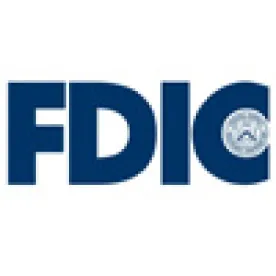On May 17, the FDIC and the CFPB took parallel actions to combat the misuse of the name or logo of the FDIC and deceptive representations about deposit insurance. The FDIC approved a final rule implementing its statutory authority to prohibit any person or organization from making misrepresentations about FDIC deposit insurance or misusing the FDIC’s name or logo. The CFPB followed suit by releasing Consumer Financial Protection Circular 2022-02 providing that company’s likely violate the CFPA’s prohibition on deception acts or practices if they misuse the name or logo of the FDIC or engage in false advertising or make misrepresentations to consumers about deposit insurance, regardless of whether such conduct (including the misrepresentation of insured status) is engaged in knowingly.
The Circular emphasizes that: (i) misrepresenting the FDIC logo or name will typically be a material misrepresentation; (ii) claims that crypto-related financial products or services are “regulated” by the FDIC or “insured” or “eligible for” FDIC insurance are likely deceptive if those claims expressly or implicitly indicate that the product or service is FDIC-insured when that is not in fact the case; and (iii) misuse of the FDIC name or logo harms honest companies.
In his support of the FDIC’s final rule, CFPB Director Rohit Chopra stated that “FDIC staff has noted an uptick in potential violations in recent years. We are especially concerned about potential misconduct involving novel technologies, including so-called stablecoins and other crypto-assets. While new technologies may yield significant benefits for households, workers, and small businesses, they nonetheless pose risks to consumers who may be baited by misrepresentations or false advertisements about deposit insurance.” Acting Comptroller of the Currency Michael J. Hsu stated that the final rule is “timely in light of changes in the marketplace, technological developments, and rapidly evolving consumer behaviors. It is especially important in light of the growth of nonbank crypto firms and fintechs and their relationships with banks.”
Putting It Into Practice: Through these latest actions, the regulators are specifically speaking to crypto firms and FinTechs that have seen significant growth over recent years. These firms should take steps to address situations in which they make unsubstantiated claims about the availability of deposit insurance. For instance, FinTechs should make sure to explain that any FDIC insurance a customer might receive is through the insured depository institution that the company partners with, not through the FinTech itself.




 />i
/>i

